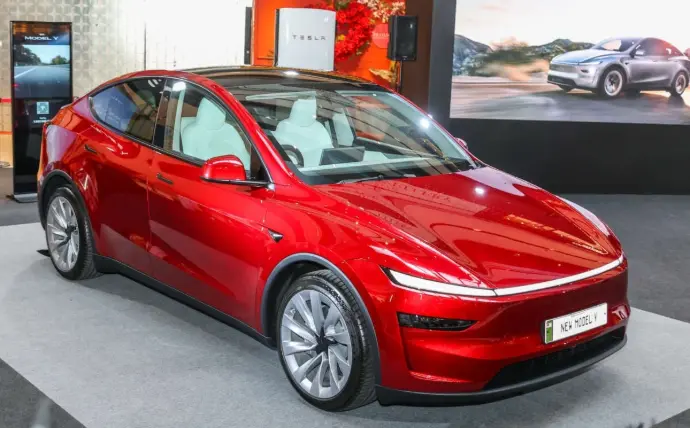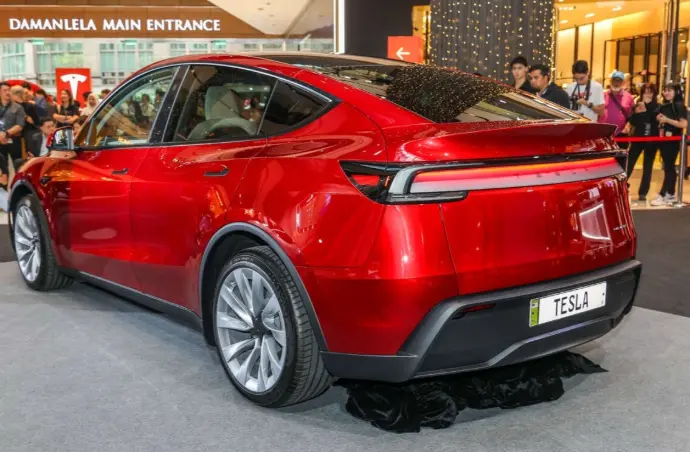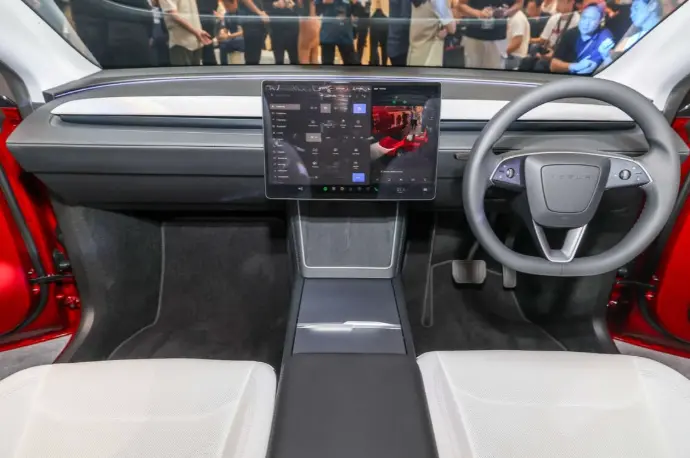Tesla officially launched in India on July 15, 2025, with its first showroom, referred to as a Tesla Experience Centre, opening in Mumbai’s Maker Maxity Mall, Bandra Kurla Complex (BKC). The 4,000-square-foot space marks Tesla’s entry into the Indian market, with plans for further expansion, including a potential showroom in New Delhi. The launch event was attended by Maharashtra Chief Minister Devendra Fadnavis, who highlighted Tesla’s role in innovation and sustainability. The company received a trade certificate from the Maharashtra RTO, allowing it to display vehicles, conduct test drives, and begin sales.

Tesla’s initial offering in India is the Model Y, an all-electric midsize SUV, available in two variants: Rear-Wheel Drive priced at ₹59.89 lakh and Long-Range Rear-Wheel Drive at ₹68 lakh (ex-showroom). An optional Full Self-Driving (FSD) package adds ₹6 lakh to the cost. The Model Y, featuring a refreshed design with C-shaped LED taillights and a 526 km range (EPA-rated), is imported as a Completely Built Unit (CBU) from Tesla’s Berlin factory, incurring high import duties of 70-100%. Deliveries are expected to start in August 2025, with bookings already open.

While Tesla has not confirmed local manufacturing, discussions with the Indian government suggest a potential $2-3 billion investment for a factory, possibly announced at the Vibrant Gujarat Global Summit in January 2026. A new EV policy could reduce import duties to 15% if Tesla commits to local production within five years. The company has imported $1 million worth of vehicles and equipment, including six Model Y SUVs, and is hiring for roles like store managers and service staff across India. The Model 3 is also speculated to launch by late 2025 or 2026, with an estimated price of ₹35-40 lakh if import duties are reduced, targeting competition with premium EVs from Tata and Mahindra.

Tesla’s entry aligns with India’s growing EV market, projected to reach 28 million operational EVs by 2030. However, high import duties, limited charging infrastructure, and competition from local players like Tata Motors and Mahindra pose challenges. Tesla’s premium pricing may limit initial sales to 500-700 units monthly, competing with luxury brands like BMW and Mercedes-Benz.